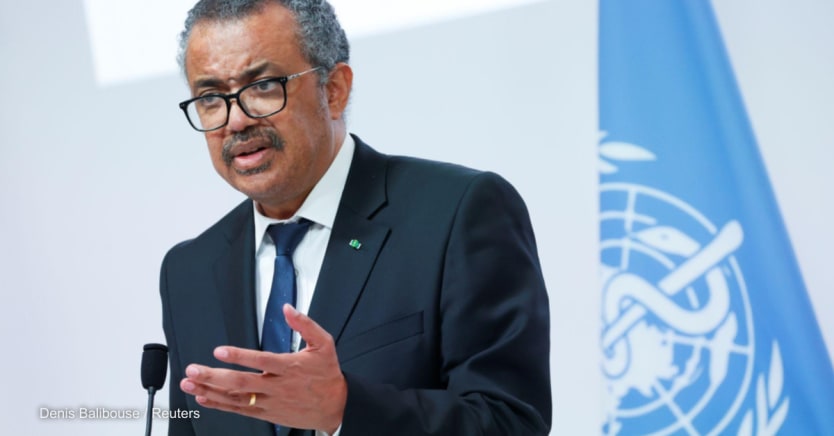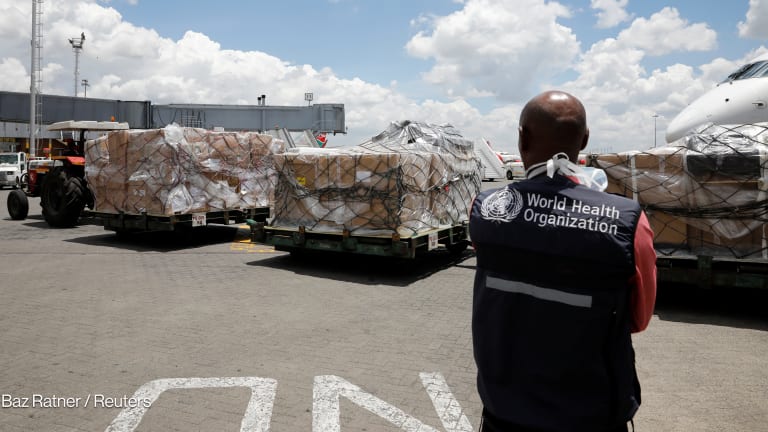
WHO Director-General Dr. Tedros Adhanom Ghebreyesus said the World Health Organization will “continue to be open for any scrutiny” in a bid to demonstrate the agency’s commitment to accountability and transparency following a recent abuse scandal.
The comments came as Tedros, the sole nominee for the next term as WHO chief, laid out his vision for the agency over the next five years.
The must-read weekly free newsletter for exclusive global health news and insider insights.
He said the organization has already demonstrated its commitment to accountability by establishing an independent commission and hiring an external investigator following reports of sexual exploitation, abuse, and harassment during the Ebola response in the Democratic Republic of the Congo.
“If that's the governance changes you're asking for, we have already done it and we will continue to do it,” Tedros said when asked by Japan’s representative Dr. Hiroki Nakatani about how he plans to strengthen WHO’s governance.
Tedros was fielding questions from member states, during the 150th session of WHO’s executive board, as part of his reelection bid for director-general. Member states nominated him for the position Tuesday, and he stands unopposed. The election will take place in May.
Other country representatives were keen to hear about his plans to deal with the effects of climate change on health, reduce illnesses and mortality from noncommunicable diseases, fix WHO’s financial constraints, and ensure the agency continues to play a central role in the global health architecture.
Tedros said climate change and health has always been one of his priorities, and it will continue to be so. He said WHO tried its “best” to ensure countries commit to developing climate-resilient health systems, and that 50 countries signed on to that at the 26th United Nations Climate Change Conference of the Parties in Glasgow.
“Of course 50 countries will not be enough. But we believe that it's a good start, and we will continue to work with countries to sign up to the resilient health system for climate change,” he said while emphasizing the importance of not just having resilient health systems but also of making investments to prevent climate change.
In addressing NCD illnesses and mortality, Tedros underscored the importance of primary health care, saying it should be able to help people lead a healthy lifestyle, including in managing obesity, or quitting tobacco use.
“It's very important to promote … health and prevent disease than [only] care or manage or treat disease. And we have to prepare our primary health care for that,” he said.
As regards WHO financing, Tedros emphasized that strengthening WHO’s resource mobilization has been his priority since taking office in 2017. WHO published its first investment case in 2018, and saw an increase in voluntary contributions. WHO Foundation, which Tedros announced in 2019, has also since been established.
But efforts to increase the organization’s assessed contributions “has not moved an inch,” he said, and asked member states to support current proposals to gradually increase their assessed contributions to WHO to cover 50% of its core budget by 2029.
“On our side is done whatever we can as secretariat, but the part from … the government side, from our member states, is not moving so please, I ask you, Japan and others to do that,” he said.
In response to a question on suggested changes to the global health architecture and how he plans to ensure WHO will continue to play a central role in that, he said the U.N. agency has the mandate to play a convening and coordinating role in global health, and that “we [WHO] actually consider ourselves as coordinators among equals.”
He said WHO values the contribution “of all other agencies” and that it looks forward to “working with them even stronger than before.”









